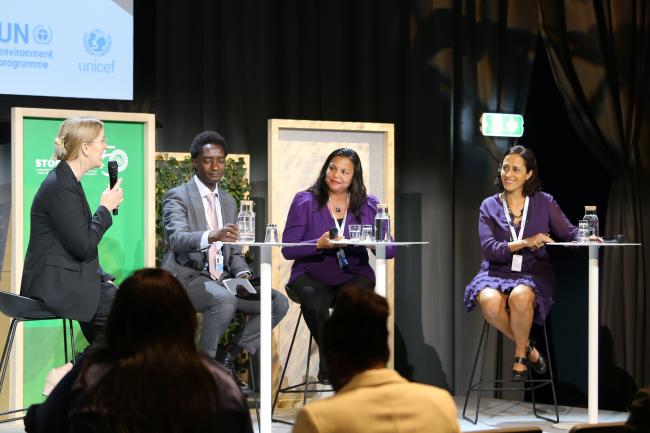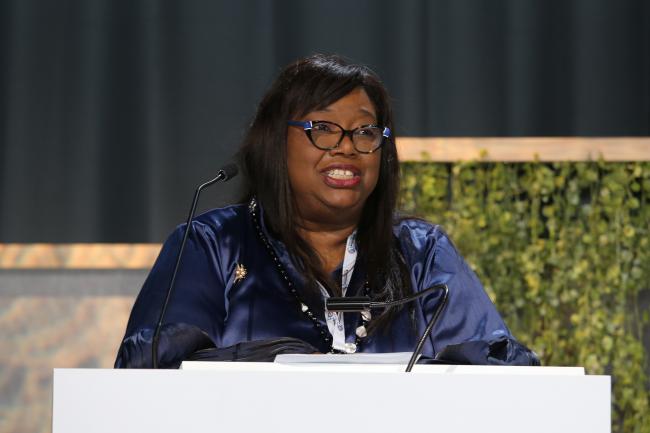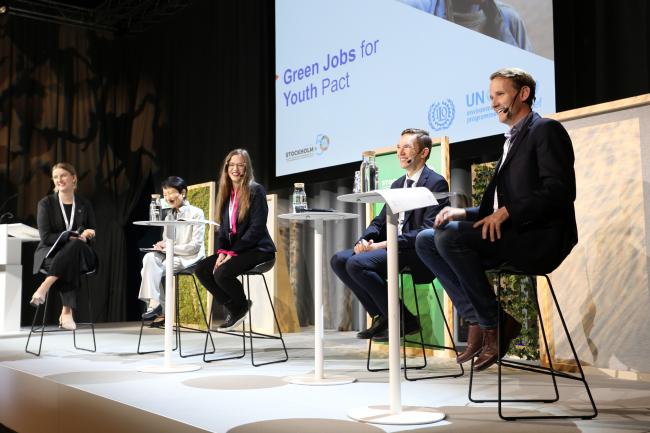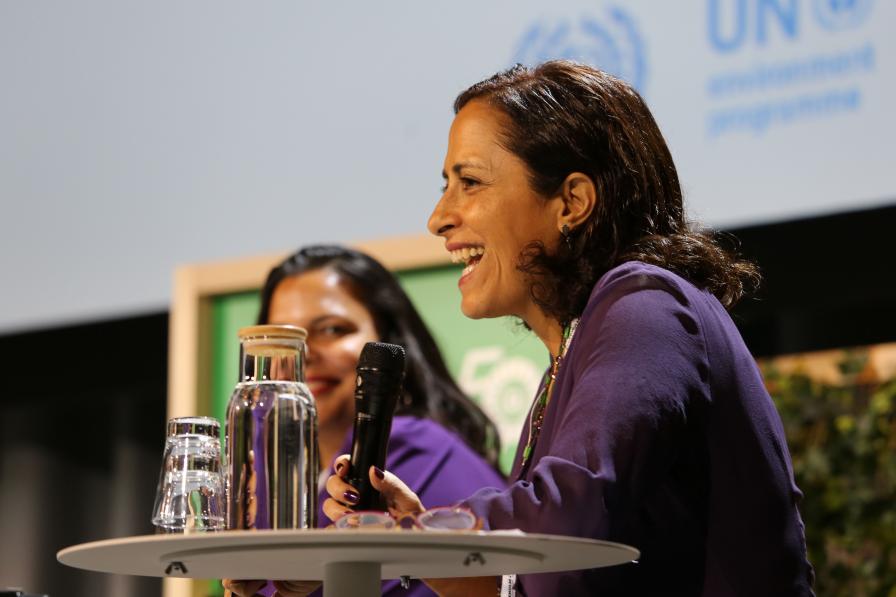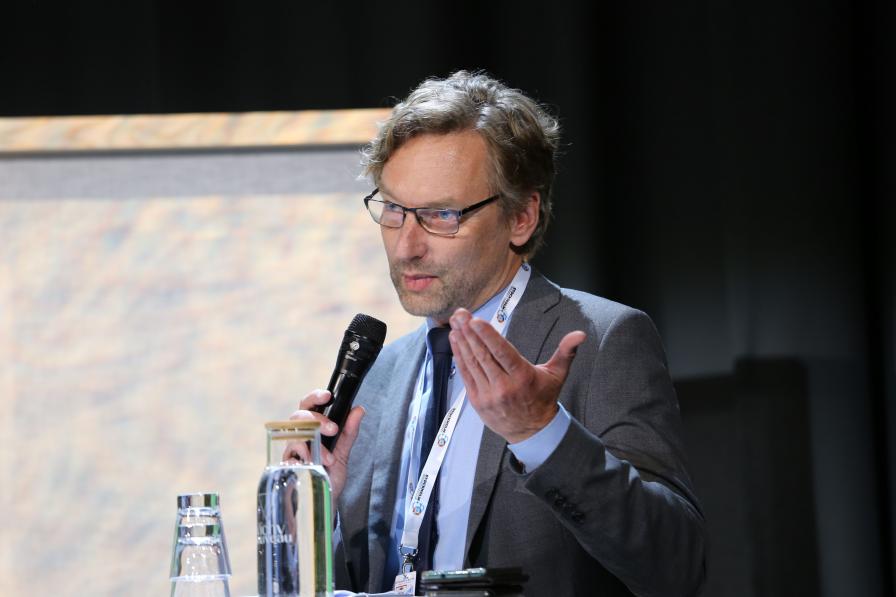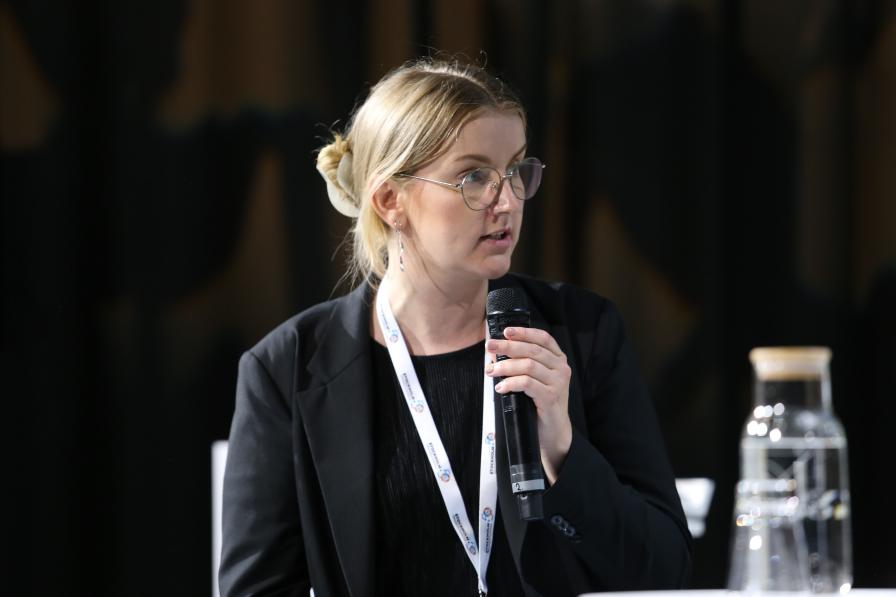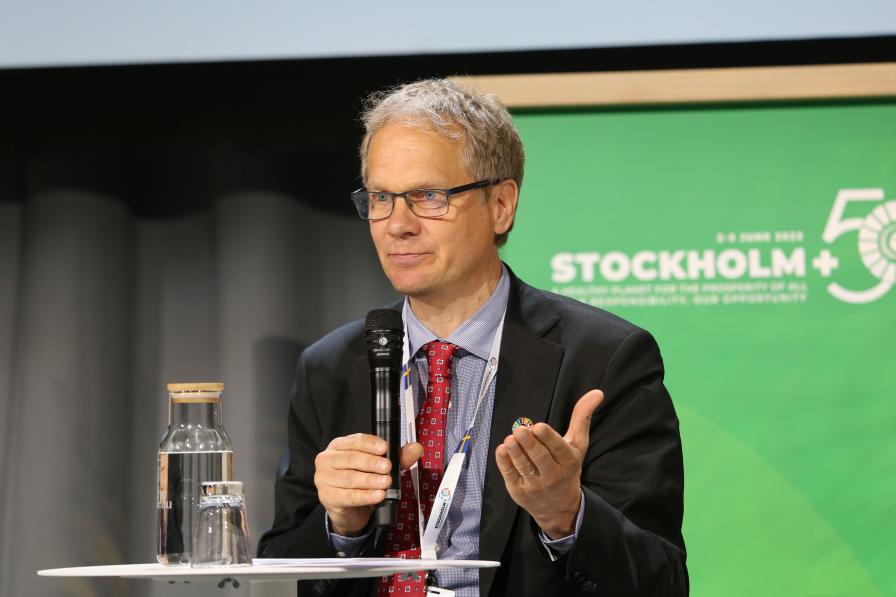About
Noting intergenerational promises at the heart of the original Stockholm Conference, panelists discussed how to make the green economy transition fair for young people.
Organized by: the International Labour Organization (ILO); the UN Environment Programme (UNEP); and the UN International Children's Emergency Fund (UNICEF)
This event, moderated by Mette Grangaard Lund, Technical Officer, ILO, focused on accelerating commitments to secure green jobs and green, employable skills in key countries and high-impact sectors. Speakers focused, in particular, on ways to ensure youth can achieve the required transition towards a sustainable future.
Key messages from the event included that:
- young people are at the heart of our effort to make peace with nature;
- the green and circular economy may create 100 million jobs by 2030;
- the transition will have to be just to ensure a transition; and
- green jobs on renewables and the environment are rapidly growing.
In opening keynote remarks, Sonja Leighton-Kone, Acting Deputy Executive Director, UNEP, underscored the need for “radical ideas to rapidly transform our societies,” to address the triple interconnected crises of pollution, climate change, and biodiversity loss. Stressing that making peace with nature is the defining task of the 21st century and that young people are at the heart of that effort, she invited: stakeholders to join the Green Jobs for Youth Pact; young people to shape the initiative; and states and the private sector to promote and create green jobs.
Moustapha Kamal Gueye, Global Coordinator, Green Jobs Programme, ILO, emphasized that a positive narrative exists, pointing to the potential creation of 100 million green jobs by 2030. He called for aligning labor and environmental policies and bridging the gap between supply and demand in the labor market. He stressed that 9 out of 10 jobs are generated by the private sector and highlighted the need to develop the workforces’ skills.
Urmila Sakar, Global Head of Programmes, Generation Unlimited, UNICEF, highlighted the work of Generation Unlimited to connect young people with initiatives under UNEP and the ILO. She emphasized that young people are powerful agents of change but are also vulnerable to climate hazards and environmental degradation.
Adriana Zacarias Farah, Head and Global Coordinator for Global Opportunities for Sustainable Development Goals, UNEP, noted that the Stockholm+50 Conference offers the opportunity to “reflect on “three Is” of 50 years of environmental action: implementation, interconnectivity, and the intergenerational element.” She stressed the need to move from commitment to action and highlighted the paradigm shift and new narrative towards circularity.
Anders Grönvall, State Secretary to Minister for Climate and the Environment, Sweden, highlighted the Youth Task Force that was organized by the Children and Youth Major Group of UNEP, the National Youth Council of Sweden, and the Swedish Ministry of Environment. He underscored that the required transition is about making all jobs green and, providing examples from Sweden, noted private companies leading the transition will have a better chance to hire the most skilled personnel in the future.
Frank Siebern Thomas, Head of Fair, Green, and Digital Transitions, Research Unit, Directorate-General for Employment, Social Affairs and Inclusion, European Commission, drew attention to the European Green Deal. He emphasized that the green transition offers many opportunities and highlighted the need for solidarity, stressing that “it has to be a just transition or there will be no transition.” He drew attention to the European sustainability competence framework, focusing on transferable and soft skills, system thinking, and connection with nature.
Nate Williams, Senior Director, Economic Graph Partnerships, LinkedIn, focused on underreported dimensions of climate change implications, including data on skills and human capital. He stressed that LinkedIn operates as an intermediary between supply and demand labor markets, and discussed trends in the green economy, noting jobs on renewables and the environment are rapidly growing. Regarding barriers, he called for defining what “green jobs and green skills” are, pointing to relevant open-source data.
Vladislav Kaim, Children and Youth constituency to UN Framework Convention on Climate Change (YOUNGO) Green Jobs focal point and UN Secretary General Youth Advisor on Climate Change, stressed that green jobs are a good indicator of a stable future. Emphasizing the need for a just transition, he pointed to the importance of “decent” green jobs, highlighting the role of youth in the social dialogue, including women and girls, and those with no access to higher education or vocational training.
Agnes Vinblad, Policy and Program Associate for Sustainability, United States Council for International Business, pointed to the 11th area of commitments in the “Our Common Agenda” report, on youth engagement, and provided relevant examples, including from the Sustainable Development Solutions Network. She underscored that the idea of a just transition applies to both workers and employers, stressing “all jobs can and should be green.”
Naoko Ishii, former CEO of the Global Environment Facility and Chairperson, Global Advisory Board of the University of Tokyo, discussed ways to ensure that both youth and the existing workforce are well equipped for the required green transition. She explained the green side of sustainability should not only focus on natural sciences, but it should also follow an inter- and transdisciplinary approach. She concluded underscoring the need to change the market structure and relevant incentives, as well as the accounting system to appropriately value natural and human capital, attracting the necessary funds and charting a clear pathway for a sustainable future.
Charles T. Sunkuli, CBS, Principal Secretary of State Department for Youth Affairs, Ministry of Information, Communications, and Technology Innovation and Youth Affairs, Kenya, highlighted the national ban on single-use plastics and discussed new packaging initiatives as part of job creation efforts in the informal sector. He underscored the link between education and job creation and stressed the need to “skill and reskill our youth” for well-distributed green jobs.
Contact
Mette Lund | lundm@ilo.org
To receive free coverage of global environmental events delivered to your inbox, subscribe to the ENB Update newsletter.
All ENB photos are free to use with attribution. For photos of side events during Stockholm+50, please use: Photo by IISD/ENB | Angeles Estrada Vigil
